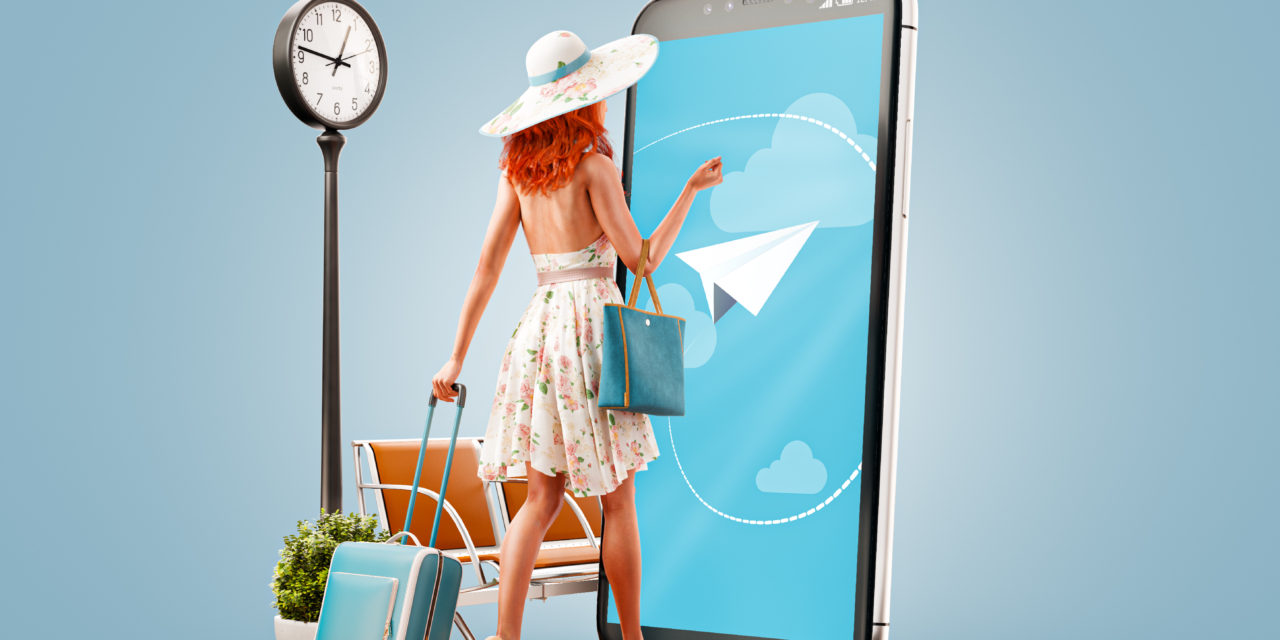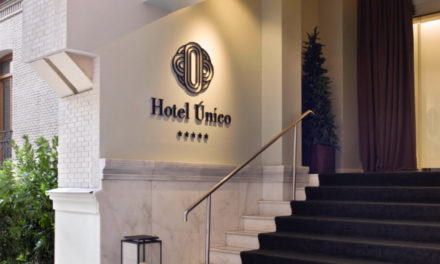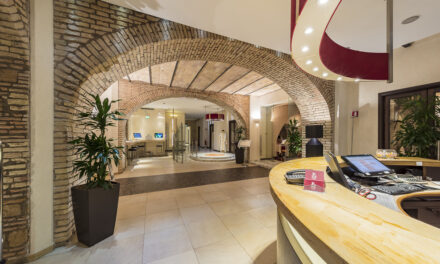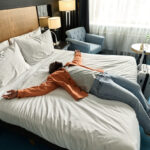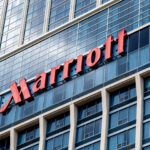The hospitality industry is set to invest in a contactless technology hoping that this will result in a reduced rate of COVID-19 transmissions among its guests. However, experts believe the sole use of this technology may not be enough for guests to stay healthy.
As expected, the current pandemic has sent a lot of businesses crashing. The hospitality industry, unfortunately, is one of such businesses. Given the lockdowns and reduced travels, hotels have suffered a solid reduction in their bookings and managers are seeking the best way to cajole their clients into visiting them again, even amid the pandemic.
To deal with the effect of the pandemic, hoteliers are considering the use of contact-free technology so that the number of surfaces a guest touches is reduced. In their opinion, which may be right, this idea, if well-developed will make travelers feel safer. Experts on the other hand think a contactless technology may not be all it takes to stop the spread of the infection, unless, of course, emphasis is laid on the washing of hands and staying socially distant.
With a contactless hotel, you arrive in the foyer of a hotel, however, you must have checked into your room using the hotel’s mobile app. You gain entry to your room by tapping a button on the mobile app. With the same app, you can turn on the television, control the temperature, or order room service. And if the room has Amazon Alexa installed, you can call out your commands and Alexa takes care of the rest.
Lodging in hotels may not seem like the best idea this season but some vacationers or business travellers wouldn’t mind. Marriot International, in early May, said in The Wall Street Journal that it attained a 20% occupancy in North American budget hotels. In June, the CEO, Anne Sorenson announced at a Goldman Sachs travel conference that it has exceeded the 20% occupancy in North America. An indication that people are booking hotel rooms, irrespective of the virus.
In an attempt to attract customers, hotel managers have taken up an interest in digital technologies, increasing their investments so that fewer contacts are made with surfaces such as doors, blinds, television remotes, and keys. They envisage a time when every activity will be automated. A number of major hotels have been investing in digital technology like keyless entry and digital check-ins,however, in the middle of the pandemic, more hotels are now considering such implementations to make their guests feel safer.
Martin Chevalley, the CEO of InnSpire Global, a tech company that works with some boutique hotel brands to create digitally improved travel experiences says “This has become even more accepted in the mind of hoteliers: that they’re going to have to do with much less physical interaction and much less contact”
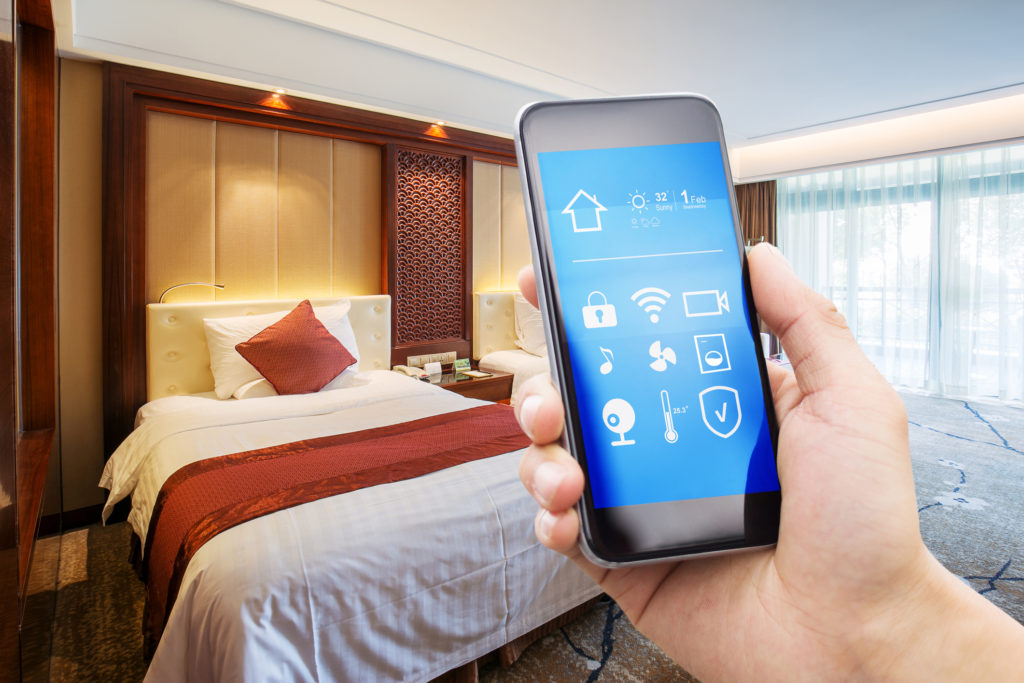
Keeping the hotel safe in this period is a very demanding task, given that the virus is even more easily transmissible in such a setting. McKinsey seems to believe much in the idea of contactless technology. In June, the consulting firm supported hotel managers on the use of the contact-free technology, citing China as an example and explaining that Chinese hotels, by initiating the use of robots to deliver meals have reduced physical interaction in at least one way.
Hilton, a top hotel brand, consulted the Mayo Clinic, taking advice on setting new standards for ensuring their hotels are clean and that social distancing is observed among guests. Chevalley assures that many other hotels are also following the idea of a thorough cleaning. Rooms are rigorously cleaned after a guest checks out and the hotels are ensuring that their guests know this.
One way of doing this is by leaving notes around the room stating that the surfaces have been cleaned and decontaminated. The hotels also give their guests the liberty of opting out of routine cleanings so they are not concerned about the possibility of contamination by other persons.
“The question is, to what extent will this change hospitality forever?” Chevalley wonders. Reducing the need to touch surfaces may allow some hotel guests to feel safe, but this may not have the expected effect on a larger world.

The Centre for Disease Control and Prevention expounds that while it is possible to keep a person from contracting COVID-19 by “touching a surface or object that has the virus on it,” it is not the virus’s major route of transmission. Scientists believe that the most notable way of contracting the virus is through close interactions with infected people.
In a statement by Andrew Ibrahim, chief medical officer at HOK and a surgeon at the University of Michigan Hospital, he describes the contactless technology as the best method employed to support other strategies already in place to reduce the risk of infection.
In his words, “what’s concerning to me is that if people assume it’s a substitute for handwashing and face masks and that all of a sudden if we have a touchless technology world then we won’t have any infection problems, and [they] throw out the tried-and-true boring stuff of hand washing and face masks,”
It is good that hotels are cleaned thoroughly to help reduce the transmission rate, however, transmission majorly occurs when an infected person talks, laughs or yells within close proximity of other people. Thus, hotel guests have to follow all necessary guidelines – consistent washing of the hands, wearing masks, and maintaining social distancing.
Will this be the new normal? Hotels will possibly continue with the measures that bring in more clients, be it the adoption of contactless technology or ensuring that guests wear their masks when outside their rooms. It is however some sort of myopic thinking to expect that door handles will be completely gone with the change.
Ibrahim opines, “I think if [contactless technologies] are going to be lasting changes, they’re going to need additional benefits than just weathering COVID-19”, giving the examples of keyless entry and digital check-in already being deployed by hotels.
He believes these kinds of innovations may live on even after a vaccine is found. However, the use of a mobile app may not go a long way since people may feel reluctant about opening an app each time they need to do basic things in their rooms. He concludes, “A year from now, hopefully, we have a vaccine and everyone gets it. Are [hotels] going to be motivated to keep doing all these technologies in case another pandemic comes through? Unlikely.”

